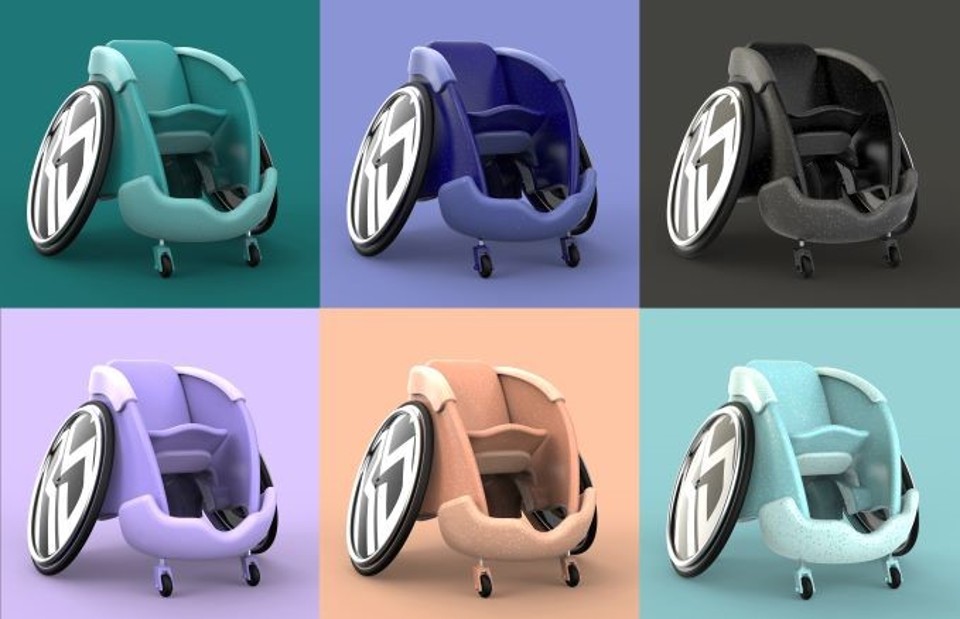Dr George Torrens and project lead Dr Timothy Whitehead, of Aston University, have designed a cost-effective child’s sports wheelchair, made from recycled plastic.
The design is the result of a year-long project funded through the British Council’s Innovation for African University scheme, which aims to improve Africa's entrepreneurial skills.
The child’s rugby wheelchair is aimed at encouraging children with disabilities - especially those in low-income countries - to enter the sport, build confidence and help with rehabilitation.
Research carried out in South Africa, with project partners Real Steel Wheelchairs, identified a distinct lack of resources for children’s disability sports, especially wheelchair rugby.
One of the main barriers to uptake is the cost of the specific chairs. It was also identified that current designs look and sound intimidating to young children who wish to give wheelchair rugby a go.
Dr Whitehead and Dr Torrens, plus designers Rebecca Leatherland and Keaton Hargun, created a wheelchair concept design with a softer, more inviting appearance than traditional chairs.
The frame can accommodate a range of sizes from eight to 11-years-old with built-in adjustments.
To reduce costs and to support the circular economy, the frame is made from recycled High Density Polyethylene (HDPE) that comes from sources such as plastic bottle tops, with embedded fixings.
Over the past few years in South Africa, there has been an increase in innovation and manufacturing methods with HDPE. One of the project’s aims is to reduce reliance on global supply chains and set up local manufacturing of these chairs in low-income settings.
Of the project, Dr Torrens said:
“Tim’s team has done a great job of interpreting the needs and challenges we defined to produce a sustainable inclusive sports wheelchair for manufacture and use in Southern Africa.
The work complements that which we have been undertaking here in the School of Design and Creative Arts.”
The project is hoping to secure more funding in the future to progress the designs and make them a reality for children with disabilities in South Africa.
Dr Torrens is also working on developing a sustainable, inclusive boccia ramp, and a sports governing body is currently reviewing his design. More information on his research can be found on his academic profile.
